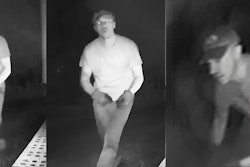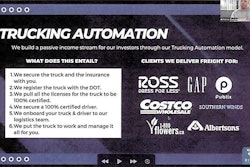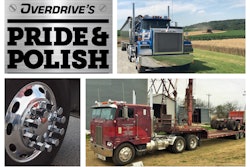Trucking news and briefs for Friday, Sept. 6, 2024:
Texas DPS pull 17 people from secret box truck compartment during inspection
Texas Department of Public Safety (DPS) Troopers recently discovered 17 illegal immigrants being smuggled inside a hidden compartment in a cloned home improvement store delivery truck during a traffic stop in Kinney County.
Early in the morning on Friday, Aug. 30, a DPS trooper conducted a traffic stop on what appeared to be a Lowe’s Home Improvement Store delivery truck on U.S. 277 outside of Del Rio.
During the stop, the trooper saw discrepancies with the driver’s travel itinerary and noticed the driver demonstrating strange behavior. After the driver consented to a vehicle search, troopers went inside and located a false compartment in the truck’s cargo area.
Troopers then used breaching tools to gain access to that compartment and found 17 individuals crammed inside the three-foot-wide space with no air ventilation.
[Related: Inside an uptick in human smuggling via truck: Avoid unwitting participation, keep attention high]
The group of 17, including four females and 13 males from Columbia, the Dominican Republic, El Salvador, Guatemala, Honduras and Mexico, were quickly removed. Several were treated for dehydration. Then all 17 were referred to Border Patrol.

The driver, Cezanne Megel Patterson, 28, of Jackson, Mississippi, was arrested and charged with smuggling of persons with the likelihood of serious bodily injury or death. He was transported to the Val Verde Processing Center.
Video of the traffic stop, including when the trooper discovered the hidden compartment, can be seen here:
Texas Supreme Court to hear Werner’s high-profile 'nuclear verdict' case
The Texas Supreme Court announced it will hear an appeal of a $100M post-crash verdict involving Werner Enterprises, stemming from a fatal December 2014 crash.
In the initial trial, Werner was found mostly liable for the crash, even though Werner’s truck was struck by an out-of-control vehicle that crossed the interstate median.
The crash occurred on I-20 in Odessa, while the area was under a Winter Storm Warning. Werner’s driver, Shiraz Ali, was driving Westbound while accompanied by his supervisor, who was in the sleeper berth. In the Eastbound lanes, Trey Salinas drove a pickup truck with Jennifer Blake and her three children as passengers. Salinas hit black ice, lost control of the pickup and spun across the grassy median into Ali’s lane.
According to court documents, Ali promptly braked, but the vehicles collided, resulting in the death of one child and serious injuries to the rest of the Blakes. An investigating officer testified during the trial that the crash was “truly an accident,” adding that Ali “didn’t do anything wrong” and that there was nothing he “could have done to avoid the collision.”
The Blakes sued Ali and Werner for wrongful death and personal injuries, and a jury found them liable and awarded the Blakes more than $100 million in damages. That judgement has since been affirmed in a Texas appellate court.
The Texas Supreme Court will hear the case on Dec. 3. Werner and Ali seek to have the previous judgement reversed.
Werner’s case in part led the Texas legislature to enact a new law in 2021 that added a layer of protection for motor carriers in post-crash litigation.
The law requires a jury to find a trucking company or truck driver liable for a crash before exemplary damages can be sought in a civil case. It allows a defendant trucking company to request a two-phase trial in which the first phase would be used to determine liability for the crash itself and the amount of compensatory damages awarded. The second phase would be used to determine any negligence from the motor carrier, such as driver training or equipment problems, and the amount of exemplary damages awarded.
[Related: The pervasive impact of nuclear-verdicts hype, threat]
DEA holding marijuana rescheduling hearing in December
The Drug Enforcement Administration will hold a hearing on its proposed rescheduling of marijuana later this year.
In May, the DEA proposed to move marijuana from a Schedule I controlled substance to a Schedule III controlled substance. That proposal has raised questions from the trucking industry about how it would affect DOT drug testing of truck drivers, among other concerns.
The DEA’s hearing on the proposed rescheduling will be held Dec. 2 at 9 a.m. Eastern at the DEA Hearing Facility, 700 Army Navy Drive, Arlington, VA 22202.
[Related: Buttigieg: Marijuana rescheduling won’t impact DOT drug testing]
The purpose of the hearing, DEA said, is to gather “factual evidence and expert opinion regarding whether marijuana should be transferred to Schedule III of the list of controlled substances.”
Anyone who wishes to participate in the hearing is required to file a written notice of intention to participate for review by the DEA by 11:59 p.m. Eastern on Sept. 30. Electronic filings can be made as a PDF attachment via email to the Drug Enforcement Administration, Attn: Administrator at [email protected]. More details on how to participate can be found here.
[Related: Trucking Law: Marijuana rescheduling impact for pro truckers]









